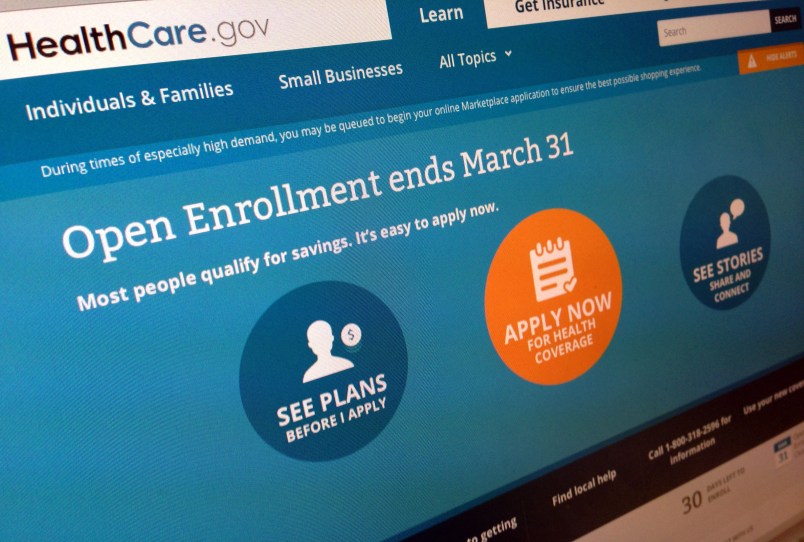Repealing the Affordable Care Act would result in 32 million Americans losing their health insurance by 2026, according to an analysis published Tuesday by the Congressional Budget Office (CBO) and the Joint Committee on Taxation.
The CBO projected that the 2015 bill passed by Congress to repeal Obamacare, which would have immediately eliminated the individual mandate penalizing those who do not purchase insurance plans, would have resulted in 18 million people losing their health insurance in the first new health plan year.
The 2015 bill, which was vetoed by President Obama, dictated that two years after enactment, Medicaid expansion and subsidies for plans purchased through the marketplace would be eliminated, which would bring the uninsured level to 27 million. People would continue to lose health insurance, reducing those covered to 32 million by 2026, according to the CBO’s analysis.
The CBO also calculated that in the first new plan year after enactment, premiums for those in the individual market would have risen by 20-25 percent, and then would almost double by 2026.
It’s not clear what parts of the 2015 bill Congress will use to repeal Obamacare, and Republicans have yet to detail what their replacement plan would look like. But the CBO analysis offers a glimpse at the impact of a repeal if Congress does not develop a replacement.
The new analysis was requested by Senate Minority Leader Chuck Schumer (D-NY) and the Democratic ranking members of the Senate Finance Committee and the Senate Committee on Health, Education, Labor, and Pensions.
The CBO had previously conducted an initial analysis of the 2015 bill’s impact on health insurance coverage. The new analysis published this week looks at changes in coverage and premiums if certain Obamacare reforms are kept in place but subsidies and the individual mandate are eliminated.
In the first new plan year, the repeal of the individual mandate would decrease the number of people purchasing plans, particularly among healthy people with low health care costs, according to the CBO. This would result in rising health care costs for insurers and lead to premium increases, according to the CBO analysis.
The CBO notes that the 2015 bill would leave in place certain Obamacare reforms, like barring insurers from denying coverage to those with pre-existing conditions and setting certain standards for premiums and coverage in health plans sold to individuals. The CBO projected that “eliminating the mandate penalties and the subsidies while retaining the market reforms would destabilize the nongroup market, and the effect would worsen over time.”
The CBO said that the reductions in coverage would mostly be due to the repeal of the individual mandate. But the CBO also predicted that the repeal would prompt insurers to leave some areas in the first new plan year “in anticipation of further reductions in enrollment and higher average health care costs among enrollees who remained after the subsidies for insurance purchased through the marketplaces were eliminated.”







How soon before we see a tweet saying “the CBO is rigged!”?
IOW: Repeal, as it stands, is a negative, downward vortex that continues to grow in strength year after year.
Rigged numbers - fake news.
Whose pockets would the $32M line?
This is probably the long term goal of “GSDQ” Repugnicans. Get$ickDieQuick
Leaving politics aside for a moment: this is horrifying.